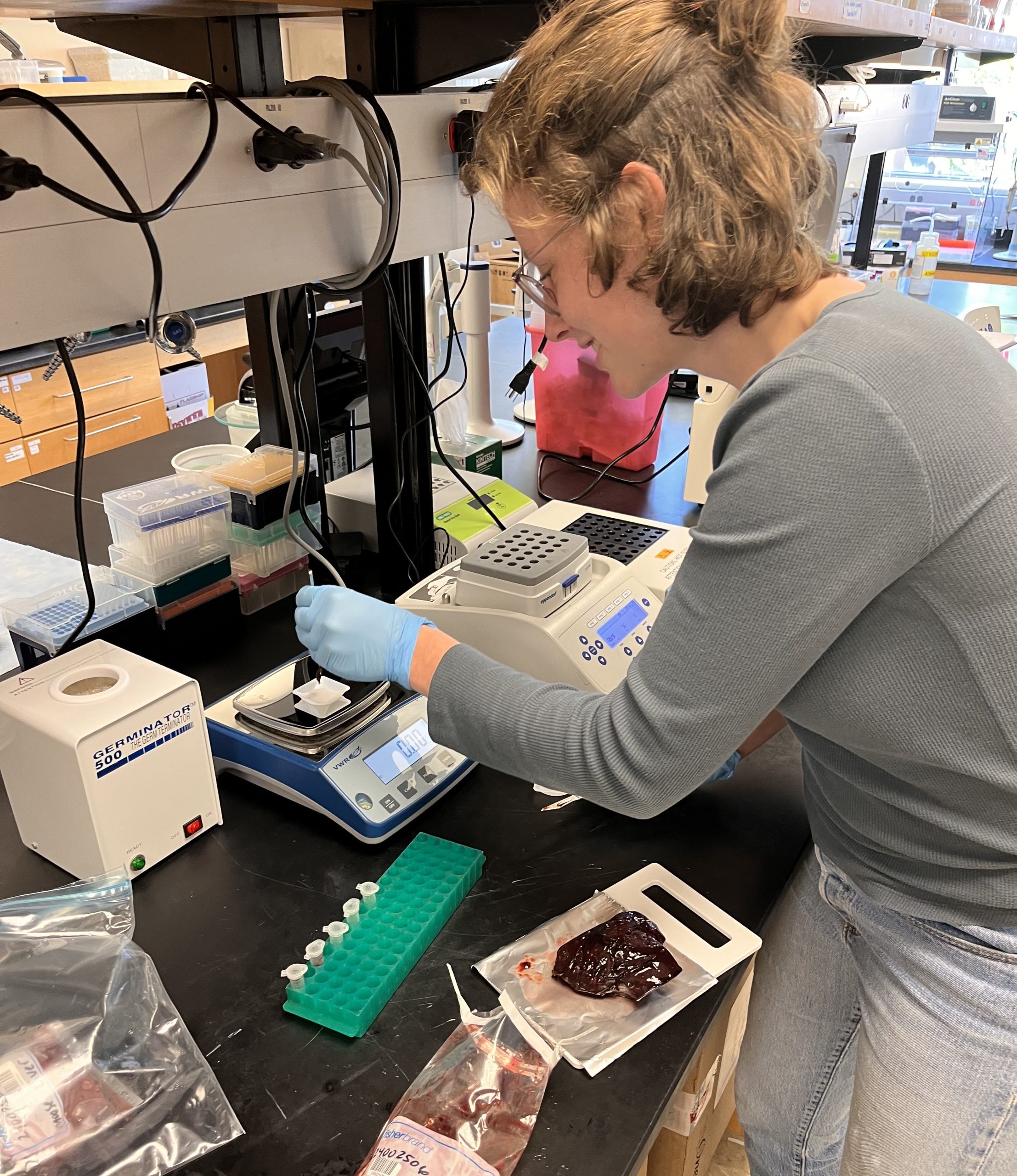
Student Spotlight: Marina McManus
Marina McManus initially got involved with research simply to add a line to her resume, but after working in a lab, she soon realized it was the path she wanted to take. As a Maine Top Scholar, she says “from day one, I have been encouraged to find a research mentor that will fit my interests in academics and research. Dr. Pauline Kamath was not the first principal investigator I spoke with, but shortly after joining her wildlife disease genetics laboratory, I knew I was extraordinarily lucky to be able to collaborate with her and other members of the Kamath lab group as a novice researcher.” “Soon after I started wet lab work, I realized that research would become the center of my interests during my time in Orono.”
McManus’ project is focused on parasite activity in Maine moose.”In the Northeastern United States, moose populations are threatened by several parasitic infections. In particular, winter ticks have been directly associated with moose calf mortality over the past decade, causing anemia and impacting the individual’s immune health.” She goes on to say that a calf’s chance of surviving the winter can be decreased by these parasites and infections they may cause. These infections can also impact the calf’s “development of key secondary sexual characteristics, like antlers.” The goals of the project are to “1) determine what species of Babesia infect Maine moose; 2) determine the prevalence of these infections, 3) evaluate the relationship between blood-borne parasite infection and antler growth, and 4), determine if winter tick could be a competent vector of Babesia in moose.”
“I had not anticipated just how many skills I would need to learn in order to succeed in a research environment.” McManus credits her faculty mentor, Pauline Kamath, and the graduate students in the Kamath lab for teaching her all she needed to know to have success in the lab. She says their help enabled her to “learn how to write research proposals, analyze and select relevant scientific literature, and format my messaging for presentations.” She says that while some of these topics are touched on during courses, they don’t provide the same level of hands-on experience she finds while working in the lab. “Dr. Kamath is able to tailor my research experience to my broader interests and is highly supportive of my career beyond my undergraduate degree.”
McManus says the most important thing to do when getting started in research is to “find a mentor and a project that you are passionate about!” She says research can sound intimidating to those who aren’t involved with it, “but in reality the practical skills you will need to be competent are easily within your reach.” She recommends that interested students “talk to different faculty members, read the literature they have authored/co-authored, and take the time to find something that you will care about.”
